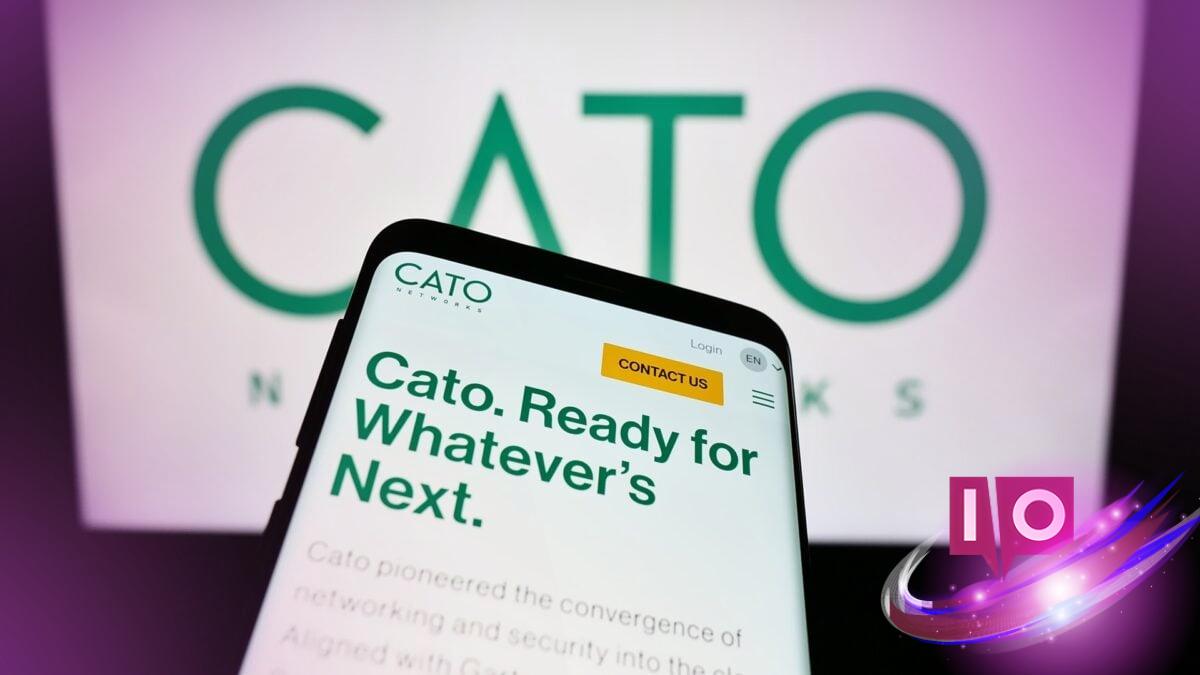In a significant move for the cybersecurity landscape, Israeli startup Cato Networks has acquired the AI-focused company Aim Security. This marks Cato’s first acquisition as a frontrunner in Secure Access Service Edge (SASE) cybersecurity, aimed at bolstering its offerings in an era increasingly dominated by artificial intelligence.
Shlomo Kramer, CEO and co-founder of Cato, described AI transformation as a tidal wave impacting enterprises worldwide, creating unique security challenges. “This is a completely new area in security, requiring us to innovate from the ground up,” he emphasized in a recent statement.
Why Is Cato’s Acquisition of Aim Security Important?
The infusion of capital from this acquisition brings Cato’s valuation to approximately $4.8 billion, with total funding surpassing $1 billion. Cato’s innovative approach replaces traditional routers and firewalls with a seamless, cloud-based security infrastructure.
By acquiring Aim, which specializes in advanced AI governance and detection tools, Cato aims to enhance its security solutions against emerging threats like the recently identified “EchoLeak” flaw in AI systems. This move aligns well with Cato’s strategy to position itself as a unified security platform ready for the AI era.
Cato Networks has garnered backing from prestigious investors, such as Vitruvian Partners and ION Crossover Partners, alongside continuous support from Lightspeed and Acrew Capital. This combination not only provides substantial financial resources but also valuable sector insights to propel Cato’s growth.
Aim Security, founded in 2022 by Matan Getz and Adir Gruss, received early-stage investments from notable firms like Canaan and GV, marking this acquisition as a successful exit for its backers and emphasizing the rising significance of AI-focused cybersecurity innovations.
As businesses increasingly integrate AI into their operations—ranging from automation to analytics—the urgency for robust security systems escalates. Cato’s acquisition positions it to meet this rising demand. However, the real test will be its capability to integrate Aim’s technologies effectively within a complex regulatory landscape.
The Political Context of the Acquisition
While the Israeli roots of the companies involved may not attract attention on Wall Street, it could heighten the profile of this deal amidst the ongoing conflicts in Gaza. Israeli tech firms have faced scrutiny from activists and organizations advocating for divestment initiatives linked to the current political climate.
Both Getz and Gruss, founders of Aim, carry military experience from the IDF’s elite Unit 8200, known for its sophisticated technical training. Such military backgrounds have made them appealing to tech investors, as many graduates enter the startup scene with advanced skills in technology and security.
This acquisition occurs against the backdrop of growing concerns and debates regarding AI governance. Tech giants like OpenAI and Anthropic are actively investing in lobbying efforts to influence regulatory frameworks, emphasizing the importance of speed in developing AI technologies.
In contrast, the U.S. administration promotes “permissionless innovation,” pushing for faster adoption while potentially relaxing regulations on misinformation and safety. Meanwhile, Europe adopts a more cautious stance, advancing stringent regulations on AI technologies.
Navigating Regulatory Changes: Cato’s Strategic Positioning
Cato’s acquisition of Aim is a strategic move that aligns with broader trends in AI security. As the regulatory landscape shifts, there will be an increasing demand for platforms that can effectively identify and mitigate risks after deployment. Cato’s success will significantly depend on its ability to navigate these shifting regulations and maintain public trust.
If executed well, Cato might offer businesses a comprehensive security solution amidst the burgeoning regulatory uncertainty. However, any missteps could lead to compliance challenges or governance issues, reinforcing skepticism regarding AI firms’ influence over regulatory policies.
Who Supports Cato and Aim Financially?
Cato’s recent funding round, bringing in $409 million, features contributions from new investors such as Vitruvian Partners along with established backers like Lightspeed Venture Partners and Acrew Capital. The latest funding installment reflects strong confidence in Cato’s vision for AI-infused SASE solutions.
Aim Security’s funding, initiated in 2022, totals around €28 million across its Seed and Series A rounds, backed by firms like Canaan Partners and GV. This acquisition underscores a successful outcome for its investors and reinforces the growing importance of innovations in AI security.
What are the implications of AI in cybersecurity audits? Businesses are increasingly requiring transparency and effective audits to manage AI risks. Firms like Cato are stepping up to fill this niche, driving demand for customizable, compliant security solutions.
Can companies be held accountable for AI-related breaches? Yes, regulatory scrutiny is growing, and firms can face significant liabilities if they fail to protect clients from AI-based security threats. This reinforces the importance of robust security frameworks.
How will Cato integrate Aim’s technology? Cato plans to incorporate Aim’s advanced detection tools into its existing framework, creating a more cohesive security solution tailored for AI-driven environments. This integration aims to address emerging AI-specific vulnerabilities effectively.
In conclusion, Cato’s acquisition of Aim Security exemplifies a strategic alignment with the growing role of AI in cybersecurity. The interplay of technology and evolving regulations will shape the future of security solutions. For more insights and discussions on this topic, continue exploring related content on Moyens I/O.
